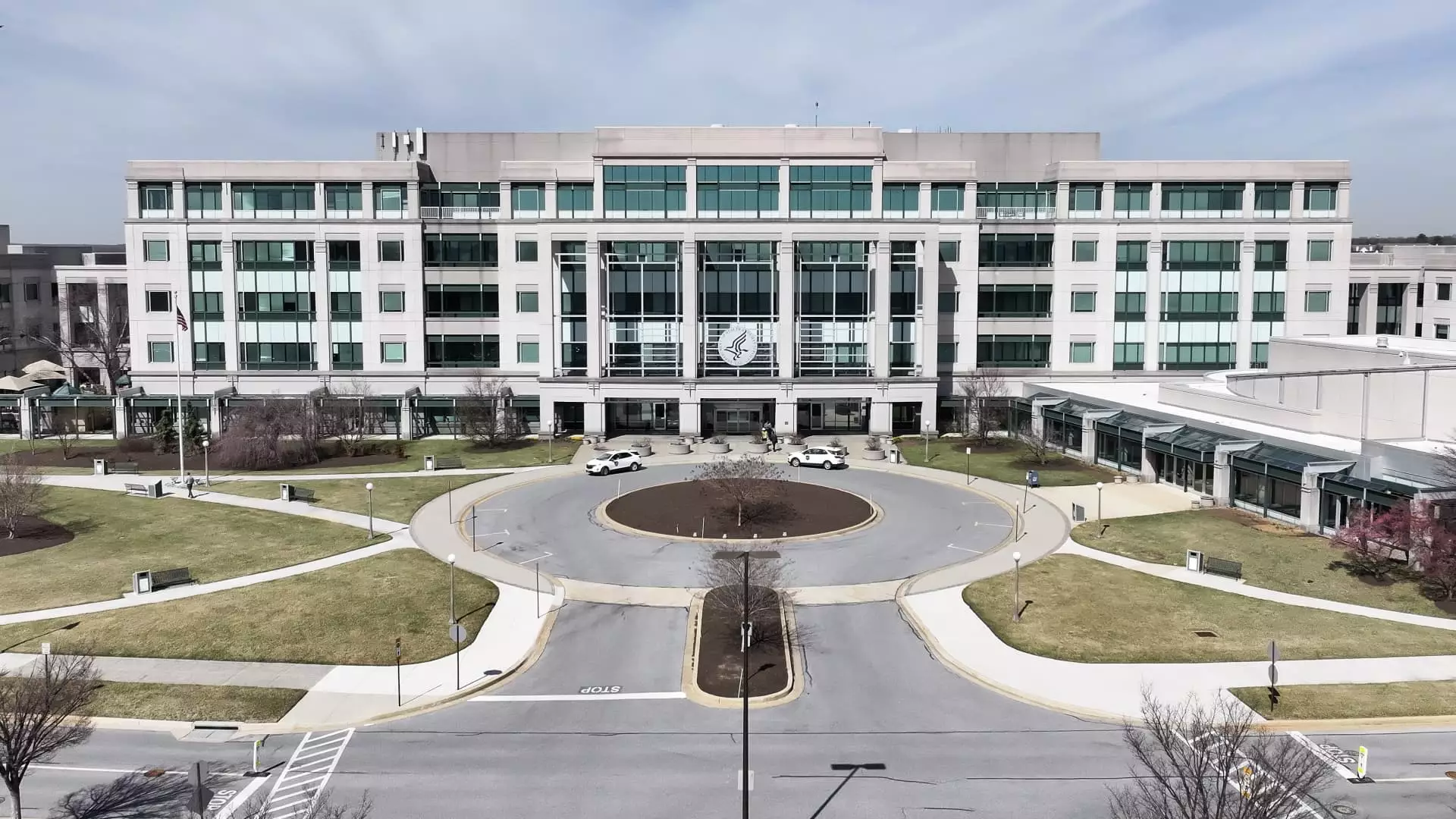In a move that has completely upended the United States healthcare landscape, the Centers for Medicare & Medicaid Services (CMS) is grappling with a seismic reduction of its workforce. Robert F. Kennedy Jr., in assuming a role that grants him significant power over the Department of Health and Human Services (HHS), has initiated sweeping reforms that will lay off an estimated 10,000 employees across the agency. While such drastic measures might be hailed by proponents of a leaner government, the ramifications for public health and accessibility cannot be overlooked. This isn’t just a fiscal decision but one with profound human implications.
During an internal meeting, CMS acting Administrator Stephanie Carlton revealed that 300 of these positions would come from her agency alone. This reduction, framed as a necessity for efficiency, may ultimately undermine the very mission that the CMS was created to serve. The agency has historically overseen vital healthcare programs for approximately 160 million Americans — a demographic that includes the elderly, low-income families, and disabled individuals. With ongoing crises facing public health, such as an uptick in measles and recent outbreaks of bird flu, the timing of these cuts raises significant concerns about the capacity of healthcare services to respond effectively.
Disruption of Minority Health Initiatives
Particularly alarming is the impact on the Office of Minority Health, a key player in addressing the health disparities that plague minority communities across the nation. Established by the Affordable Care Act, this office has dedicated itself to eliminating inequities and fostering better health outcomes for marginalized populations. The dismantling of such an office — especially at a time when healthcare access remains at a critical junction — reveals a troubling trend toward neglecting diversity, equity, and inclusion (DEI) initiatives.
It could be argued that these cuts are part of a broader ideological campaign against DEI, further exacerbating the challenges faced by minority groups seeking equitable healthcare. While Carlton assured employees that statutory obligations still compel the CMS to address health disparities, the broader implications of the office’s disbandment cannot be ignored. Its discontinuation might not only be illegal but also morally indefensible in an age where health equity should be at the forefront of our national agenda.
Celebrity Leadership: A Double-Edged Sword
As CMS prepares for the leadership of Dr. Mehmet Oz, formerly “America’s Doctor,” we must question what his appointment signifies for the agency’s future. Oz has garnered notoriety for not only his medical credentials but also for endorsing controversial health supplements and hormones which lack robust scientific backing. With someone who has straddled the line between celebrity and medical professional now at the helm, skepticism is warranted regarding the direction in which the CMS will head. Are we ushering in an era characterized by evidence-based practice, or will sensationalism dictate our healthcare policies?
The duality of Oz’s reputation poses a challenge for his leadership: he must balance the pressures of public perception, his celebrity status, and the critical need to uphold CMS’s responsibility to the American people. With ongoing debates surrounding misinformation in public health, appointing a figure more known for entertainment than for stringent scientific rigor might jeopardize the agency’s credibility.
The Consequences of Staffing Reductions
The cuts at CMS are symptomatic of a larger issue within the federal government — a resistance to adequately fund and staff essential programs, especially in healthcare. In addition to the recently announced layoffs, approximately 10,000 employees opted for voluntary separations during Trump’s administration. Taken together, these reductions amount to the loss of nearly a quarter of the department’s workforce. Such unprecedented attrition will inevitably hinder the CMS’s ability to manage complex healthcare systems effectively.
With numerous critical positions eliminated, including those engaged in overseeing Medicare and Medicaid programs, the potential fallout on patient care and program integrity is vast. The operational effectiveness of Medicare-Medicaid Coordination Offices, which develop vital models to care for dual-eligible individuals, is jeopardized. Instead of being a time to enhance health innovations, we are witnessing a regression toward bureaucratic decay.
As the federal health department steps into this new phase, it must confront the challenge of doing more with less. However, as history has shown, when vital healthcare services are underfunded and understaffed, the consequences are dire. The discourse around government efficiency must not overshadow the ethical responsibility owed to the public to ensure comprehensive healthcare access, especially for the most vulnerable populations in our society.
The upheaval we are witnessing is not merely a budgetary maneuver; it represents a significant shift in how we approach health equity and public wellbeing in America. This transformative moment in healthcare will require a vigilant public to ensure that the rights and needs of all citizens are not sacrificed on the altar of efficiency.

